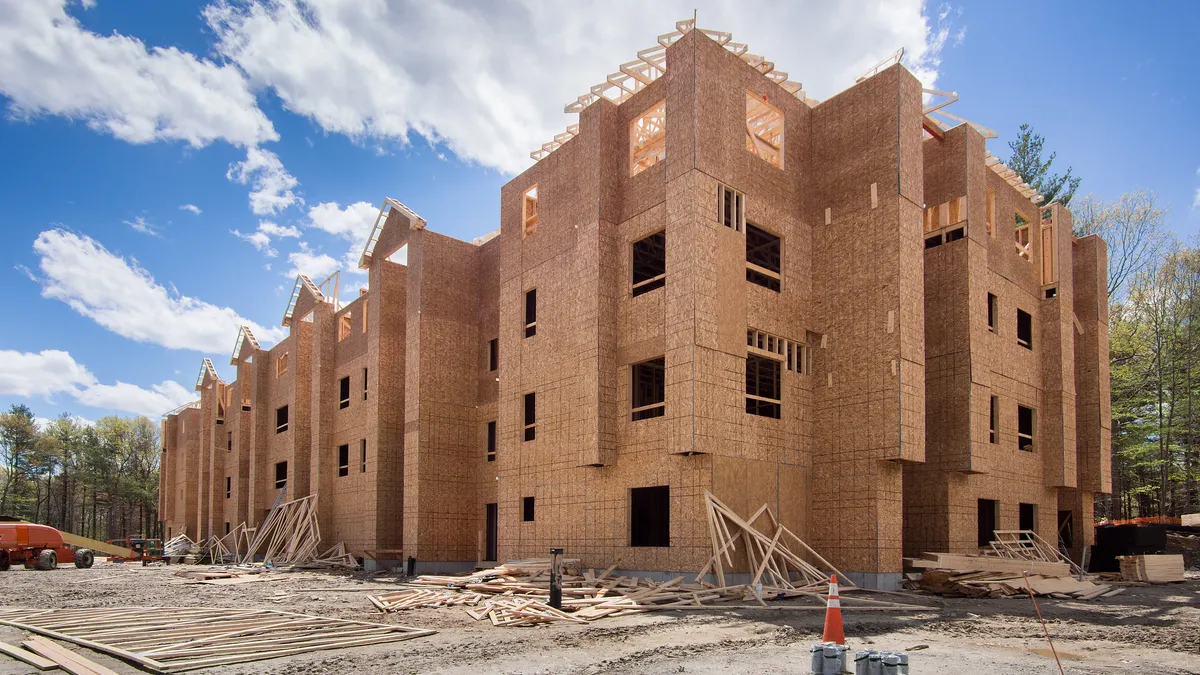Rental fraud costs property owners millions every year, with 60% of property managers falling victim to fraud in the last two years, according to a recent TransUnion survey.
And it’s only getting worse, says a recent report from Snappt. “We found more fraud last year than any year in the past,” notes Kyle Nelson, Snappt’s Vice President of Corporate Strategy.
As the presence of fraud increases, the types of attacks are becoming more sophisticated, spanning every stage of the application process. Many property managers have a false sense of security from a traditional background and credit screening. “They say, “Oh, I have a screening that shows good credit and no criminal background and no previous eviction filings. I’m good, right?’ And that couldn’t be further from the truth,” Nelson warns.
That’s why savvy property managers are turning to trusted fraud detection partners to thwart this growing threat. But what should property managers look for in a fraud detection partner? In this Q&A, Frank Fico, Strategic Account Director at Snappt, discusses the five most important considerations when making that crucial choice.
Q1: What detection methods should my partner be using?
A: The two key methods are ID verification and document fraud detection.
For ID verification, you want a tool that covers IDs or passports globally. It should conduct in-depth searches on those documents. For example, Snappt does a secondary check on driver’s licenses.
The ID verification tool should also be able to match the photo on the ID or passport to the person. At Snappt, we use what's called a passive biometric scan in which the applicant takes a selfie, and the technology ensures it's the same person on the document. Since there's a huge spike in synthetic ID fraud, we go one step further with a 360 view of that picture to ensure it's a live human being.
For document fraud, it’s important to know how long a potential partner has been in the market and how many documents have run through their system. The fraud we're stopping right now can be vastly different from the fraud we're going to stop in a couple of hours, so the tool must be able to recognize documents consistently and accurately.
Q2: How can I know if my partner will help me stay ahead of fraudsters?
A: Fraud changes almost minute by minute. The first thing you should consider is how many documents their system has analyzed, as well as their accuracy rate. Everybody says they’re 99.9% accurate, but you need to hold that company's feet to the fire, and ask, ‘Where's that accuracy coming from? And can you show proof?’
The next consideration is how they are identifying and protecting you from fraud methods that have yet to be officially discovered. We employ 60 fraud analysts and invest millions of dollars annually in our fraud forensic team, which goes out into the market, including social media, to uncover new fraud trends and tactics.
Q3: What insights should I expect from my partner, and how often?
A: It’s dependent on your appetite for data. Snappt sends monthly reports on the number of clean vs. fraudulent documents identified. The reports also detail how much controllable bad debt was prevented. We can't control if a resident loses their job or if their family situation changes, but we can control the people who purposely create fraudulent documents to move into the community with a high probability of not paying rent.
To recap, the most important insights are:
-
How many applicants were reviewed?
-
How many were ruled clean?
-
How many were ruled fraudulent?
-
What would be the impact on that asset or portfolio if we identified those folks and did not allow them to move in?
Q4: What about integrating with my existing PMS?
A: It's extremely important to have integration with a product provider. In general, integration with a property management system (PMS) should reduce work for the onsite team and create a smoother process for applicants.
The first thing to verify is whether there’s a true API integration between the potential partner’s system and your existing software. A data push is not the same as an API. If the software gets updated, and it's not an approved API integration, that workflow and efficiency can stop on a dime, and then it's very hard to replicate it or build it back up.
If it's not an official integration with that property management software, I would definitely have concerns about that. It may work today, but there's no guarantee that it's going to work tomorrow.
Q5: What kind of additional support should I expect?
A: You should expect an account management team and a client success team.
But you have to go deeper than just ensuring those basics. It's very easy to sell a solution. It’s much harder to support it and have support for the teams when they need it. For example, if it’s five o'clock on a Friday and there's an issue with this applicant, will somebody be there to help answer your question?
The other important support is a dispute team for your applicants. In other words, if I'm an applicant and get denied for one reason or another, is there a department that covers fair housing and fair credit?
Overall, you’re looking for multilayer support for the leasing team and support for the applicants. Don’t be afraid to ask for references and ask pointed questions like:
-
How quick is your turnaround on applicant questions or system fixes?
-
Do you have ongoing training?
-
How many members are on your account management team?
-
How many members are on client support?
-
How big of a footprint does your fraud protection system have?
For more help choosing a fraud detection partner, check out Snappt’s buyer's guide for fraud detection.








